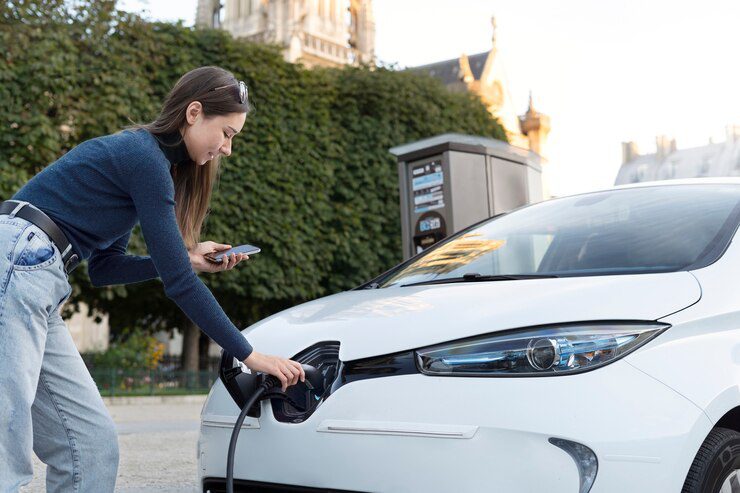EVs were initially recognized only as innovative concepts that were taking their baby steps into the world and becoming contenders within a decade. However, there is a growing trend in the automotive industry, which is the electric vehicle because of their ability to deplete the environment, cost-effectiveness, and efficiency in their performance. This blog post discusses the future of electric cars and looks into the opportunities and potential problems associated with their implementation throughout this blog.
The Effect of Electric Vehicles on the Environment
A socially responsible electric vehicle provides the public with a more environmentally friendly means of transportation than a conventional gasoline-powered car. Another powerful argument concerns the lifecycle savings of electrical vehicles; they emit fewer greenhouse gases than their internal combustion counterparts. The IEA further estimates that sales of electric cars worldwide in 2023 stood at 2.1 million, up from 1.36 million in the previous year. As the major power in the EVs comes from electricity, limiting emissions of greenhouse gases, the source of electrical energy can be coming from sources such as solar power, wind, and hydroelectric power. This transformation is important in climate change mitigation efforts because transportation is one of the biggest contributors to the carbon footprint.
Cost Savings and Incentives
Even if the price of an electric car is higher than a conventional car it is advisable to consider the future expenses that are lower for an electric vehicle. Studies done by the U.S. Department of Energy show that the owners of electric vehicles can cut costs by about $7,000 in the lifetime of the vehicle than those who own usual vehicles. Also, they get several government incentives and rebates in many countries that also act to lower the cost of EVs. Some of the incentives include tax credits, grants and lower registration fees hence making electric vehicles cheaper to use and own than gas-powered vehicles.
Technological Advancements and Range Improvements
Many consumers interested in electric cars also have always had a certain worry, namely the issue of range – or how long an electric automobile can last on a single charge. Nevertheless, the development of batteries has given electric cars better performance on the road. Today, EVs provide ranges of over 300 miles on a single charge, which eliminates previous limitations of building range into cross-country travel. According to BloombergNEF Battery Electric Vehicle Outlook 2023, it estimates that the average range of electric vehicles will extend and most newly launched models will possess a 400-plus mile range by 2025.
Challenges Facing the Electric Vehicle Market
However, the market of electric vehicles has its problems still to this date. Some of the biggest challenges it faces include the absence of charging facilities. The charging stations are currently coming up at a very fast rate but they are not as common as the fuel stations are. Also, questions about the recycling and disposal of lithium-ion batteries used in, for instance, electric cars are still an issue of concern. The industry is not idle as it seeks to ensure it comes up with the best ways of dealing with such challenges as the search for sustainable battery systems and charging stations.
The Future of Electric Vehicles
A bright future is ahead for electric automobiles. Some of the leading car manufacturers are set to phase out combustion engine vehicles by 2030 at the latest, in what is set to be a significant period for creating a sustainable auto industry. According to ICCT, about 51% of new vehicles will be EVs by 2035, and the total stock of global EV technology will reach 300 million by 2040.
Over the period it will become complex to reduce electric vehicle costs, increase efficiency, and expand its appeal to a larger number of people.
Conclusion
Electric vehicles represent a major step forward in the automotive industry, offering a sustainable transport, efficient, and increasingly popular alternative to traditional gasoline-powered cars. As battery technology continues to improve, the availability of charging infrastructure expands, and government incentives make EVs more affordable, the transition to electric vehicles is gaining momentum. The future is electric, and as more consumers embrace this change, we can look forward to a cleaner, greener, and more connected world.







